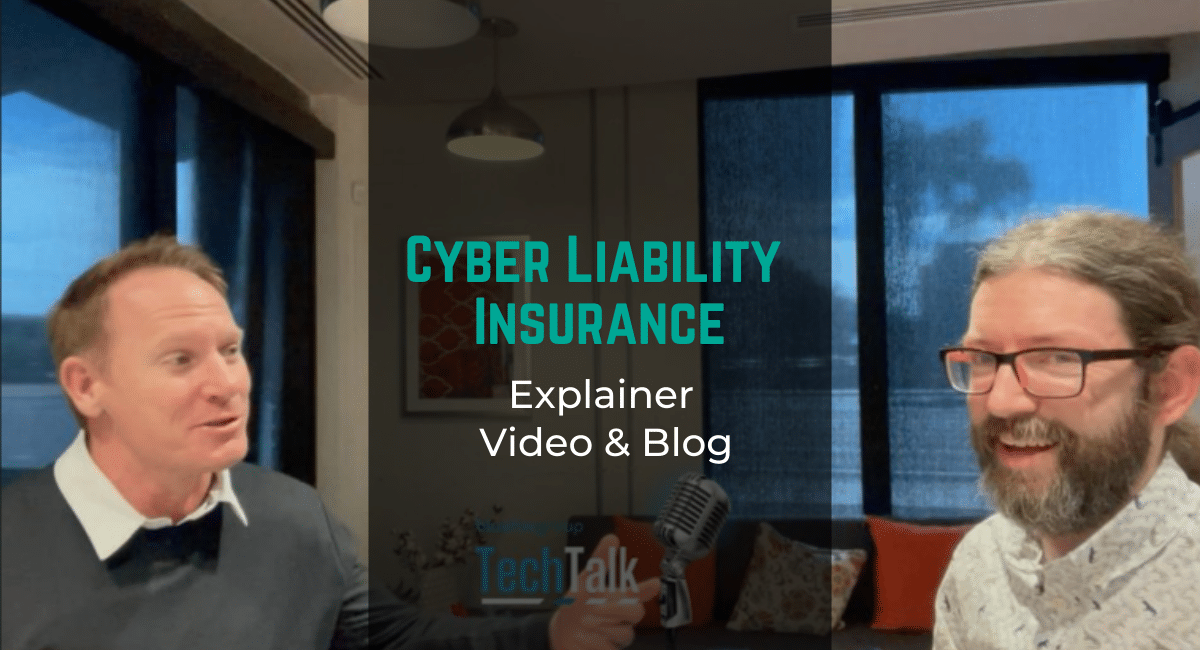Is your cyber liability insurance plan up-to-date?

What is Cybersecurity Insurance, and Who Should Consider It?
Cybersecurity insurance offers protection to organizations against the financial implications of cyber threats, which often go beyond the coverage of traditional insurance policies. This specialized insurance is crucial in today’s digital age where threats to IT infrastructure and data are rampant.
For organizations, cybersecurity insurance is not just about mitigating costs; it’s about future-proofing the business. It addresses liabilities that arise from cyberattacks, covering expenses like ransom demands, regulatory penalties, public relations campaigns, potential legal actions, and even loss of revenue due to a breach.
In essence, cybersecurity insurance provides a safety net, allowing businesses to address immediate challenges while planning and fortifying their longer-term cybersecurity strategies.
Is your cyber security insurance policy out-of-date?
Cyber insurance will soon be indispensable for virtually all businesses, regardless of sector or scale. Being equipped with a cybersecurity recovery plan is no longer just a beneficial option; it’s necessary, cautions Sr. Technology Alignment Manager Ron Llewellyn.
In earlier years, we taught business leaders how to identify cyber attacks. Today we help IT and business leaders prepare Business Continuity Plans that include cyber liability insurance to protect the business if and when an attack happens. (R. Llewellyn)
But there is a catch. Many businesses assume they’ve completed their cyber insurance applications accurately, but they later discover the intricacies of the process and face claim rejections. Why is this happening? Some cyber insurers seem to find reasons to avoid payouts. The gaps in coverage often remain hidden until a claim is filed.
Many businesses are confused by the questions asked on the cyber insurance application and, as a result, submit inaccurate or incomplete applications. (M. Lindsley)
Loopholes and lack of understanding on the part of the business can leave your organization exposed and not covered in the case of a cyber-attack.
Tune into the latest #BFGTechTalk as we discuss why many businesses have out-of-date or incomplete cyber insurance policies and don’t even know it. Watch to learn 2 critical actions you can take to ensure you are covered in the case of a cyber-attack.
Click to watch.
What is Cybersecurity Insurance, and Who Should Consider It?
Cybersecurity insurance offers protection to organizations against the financial implications of cyber threats, which often go beyond the coverage of traditional insurance policies. This specialized insurance is crucial in today’s digital age where threats to IT infrastructure and data are rampant.
For organizations, cybersecurity insurance is not just about mitigating costs; it’s about future-proofing the business. It addresses liabilities that arise from cyberattacks, covering expenses like ransom demands, regulatory penalties, public relations campaigns, potential legal actions, and even loss of revenue due to a breach.
In essence, cybersecurity insurance provides a safety net, allowing businesses to address immediate challenges while planning and fortifying their longer-term cybersecurity strategies.
Examining Cybersecurity Insurance Costs
On average, cybersecurity insurance might set a business back by approximately $140/month, although this figure can fluctuate depending on several parameters. The rising number of cyber threats has made this form of insurance an appealing option for many enterprises eager to shield themselves from unforeseen financial drains.
Several factors influence the cost of cybersecurity insurance:
- The scale and nature of your business.
- The volume and sensitivity of the data you handle.
- Your annual turnover.
- The robustness of your present security frameworks and adherence to compliance norms.
Want help completing your cyber liability insurance form?
At Blue Fox Group, we help IT and business leaders review cyber liability insurance forms with a guarantee that you meet all regulations to qualify for coverage in the case of an attack and receive the best price for that coverage.

